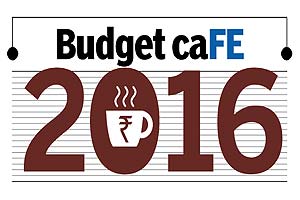It is an accepted fact that the Make-in-India vision encompasses huge potential for the pharma sector and all the calls in 2016 would be towards an increase in government expenditure on public health. Recognised as one of the most cost-effective producers of essential medicines globally and catering to 30% of the demand for generics drugs worldwide, India Inc eyes Budget FY17 with praying hands, with the biggest expectation being a simplified tax regime.
Grappling with the complexity of indirect taxation, coupled with pricing regulations by the Drug Price Control Order, the pharma sector is in a fix due to steps taken by the taxman. It expects a few key goodies from the finance minister’s kitty.
Exempt life-saving drugs
The sector has seen an overhaul by way of withdrawal of import duty exemption on 72 life-saving drugs to give impetus to domestic production of the same and to tap the potential of India pharma companies. The cost of manufacture of drugs which use any of these components will rise up in case the same are imported. The domestic market is not fully capable of manufacturing and supplying these drugs and many diseases don’t have proper remedies through generic medicines produced by Indian companies.
Make GST a reality
GST seeing the light of the day would bring relief in the form of clarity, reduction in prices as cascading effect of taxes would be done away with, coupled with relief from inverted duty structure.
Excise medicaments
Under the current regime, a 35% abatement rate for excise purposes for retail sale of medicaments is provided. This isn’t sufficient, taking into account trade margins, R&D costs and other costs associated such as distribution.
Rationalising excise duty
APIs are subject to a 12.5% duty, whereas formulations are subject to a central excise duty of 6%. This inverted duty structure results in accumulation of credit as the complete amount of duty paid on inputs cannot be set off against the output tax liability. We have to rationalise the input cost with the output—APIs’ duty rate should be reduced to 6%.
Clinical trials
India’s capabilities in clinical trials are immense, and the withdrawal of exemption on the same has affected the industry, especially the domestic contract research organisation industry, which mediates trials for foreign and domestic companies. The government should rethink on the withdrawal of exemption.
Further, clinical trials undertaken in India for clients outside the country do not qualify to be exports under the current rules, even upon earning convertible foreign exchange. The industry will be hoping for restoration of export status for such services.
Taxation of joint development agreements
Such arrangements are typically cost-intensive. While the nature is one of cost-sharing, these are being viewed as service agreements and accordingly dealt with by the authorities by imposing withholding tax and services tax implications. Industry expects a favourable resolve to this effect.
We can’t be a society of well-wishers. We must take action to bring those wishes to fruition. Though the plea of pharma companies seems to be ‘let our wishes come true’, the government must address the pain points and grant some relief. As the pharma sector cares for global health, the government should come to its aid.
Bhat is partner; Chandna is associate director, Indirect Tax, BMR & Associates LLP

